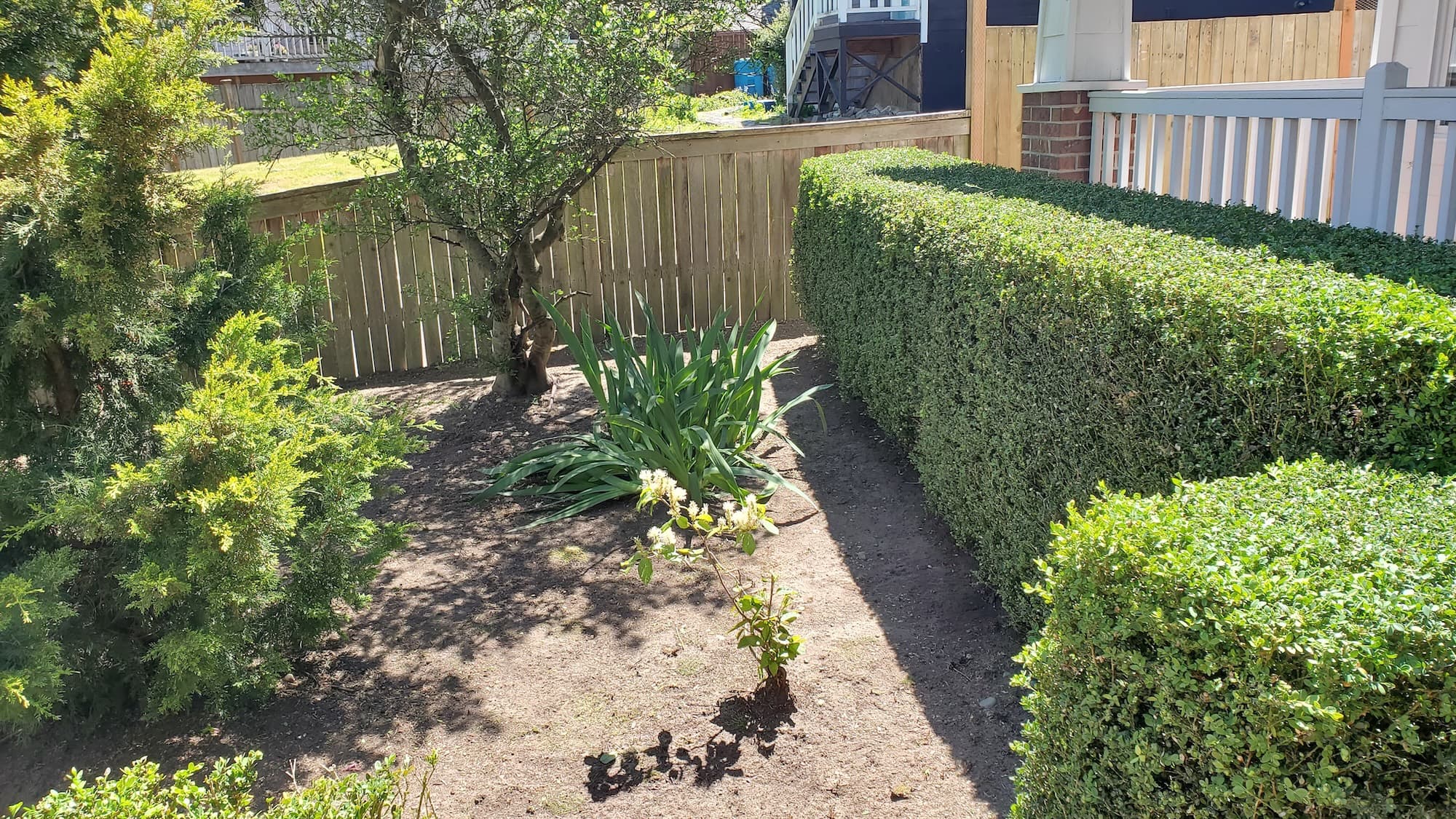West Seattle Espalier tree pruning
Homeowner’s Issue
West Seattle yards are compact, often sloped, and sit under a maritime climate that gives us wet winters, mild summers, and persistent shade in pockets. Many homeowners try to squeeze fruit trees and decorative specimens into tight courtyard spaces, side yards, and along fences. The result: crowded branches, poor airflow, and trunks that rot against damp fences. Soil here ranges from compacted glacial till to pockets of loam over clay; drainage can be poor on the steeper pitches near the Junction or the West Seattle Highlands. Salt spray nearer Alki and higher wind exposure on exposed ridgelines can strip leaves and stress young wood.
Espalier is the smart local solution — it tames canopy size, fits walls and fences, and maximizes sun on narrow sites. But it needs correct timing and technique: late‑winter structural cuts, light summer maintenance, and annual tie adjustments. Without proper pruning you’ll invite moss, voles under heavy mulch, and ivy or blackberry competition from nearby ravines like Lincoln Park gullies. Our approach is strictly sustainable — no herbicides, hand tools where possible, and composting green waste — so your espalier stays healthy and neighbors (and Puget Sound) stay protected.
Our Quality Service
We prune and train fruit and ornamental espaliers using hand pruners, sanitized saws, pole pruners, soft ties, and reusable trellis hardware. We start with a site assessment, then perform structural cuts in late winter and light corrective pruning in summer. Small jobs often finish in a half day; larger multi‑tree installs and retraining typically take 1–2 days.
Local insight: we correct planting depth on compacted till, add organic mulch to improve soil biology, and carve drainage lines where water pools against foundations. We follow Seattle water guidance — conserve in summer droughts, water deeply and infrequently, and avoid daytime irrigation. Benefits include safer branches, tidy curb appeal, reduced disease pressure, and long‑term low maintenance.
What’s Included
- Site assessment and growth-plan for your espalier.
- Sanitary pruning: structural cuts, thinning, and deadwood removal.
- Branch training: ties, clips, and adjustments to your support.
- Full green‑waste cleanup; wood chipped on‑site when feasible.
- Final inspection and care recommendations.
Options / Upgrades:
- Mulch + landscape fabric (if desired) with organic mulch.
- Organic soil amendment or compost top‑dressing.
- Green‑bin composting vs. haul‑away (you choose).
- Rebuild or install trellis hardware (materials quoted separately).
Before & After / Expectations
Expect noise from hand tools and occasional powered saws for thicker limbs. We may need clear access to fences, gates, or alleyways; narrow access can add time. Debris is separated: chips left for on‑site reuse, green waste to your City compost bin, or hauled away per your preference.
After pruning, espaliers will look cleaner but sparse for a few weeks as wounds callus and new shoots set. For West Seattle summers, water established trees deeply once every 10–14 days in hot dry spells, early morning only. Watch for moss and ivy in shaded beds and remove by hand; do not use herbicides near roots or watercourses. Plan follow‑up minor pruning each summer and fuller structural pruning every 1–3 years depending on vigor.
FAQs
Q: When should I schedule pruning?
A: Best for structural cuts in late winter (Jan–Mar) while trees are dormant. Light summer tweaks May–Aug.Q: Can you work on tight side yards or over fences?
A: Yes. We assess access first; tight jobs may require extra setup time or a short scaffold.Q: Do you use chemicals for weeds or pests?
A: No. We use organic, mechanical, and cultural controls only — mulching, manual removal, habitat adjustments.Q: How long until the espalier looks “full” again?
A: Expect 1–2 growing seasons for shape recovery after major retraining; yearly maintenance keeps form intact.
Call to Action
If you live in West Seattle and want espalier that’s tidy, productive, and low‑maintenance, schedule a free estimate. We book quickly and work from Alki to Admiral and nearby pockets like Fauntleroy. Local experience matters — we know the soils, slopes, and salt pockets here.
Email neatandtidyseattle@gmail.com or call 206-538-9344 for a photo estimate or to set a visit. Licensed • Bonded • Insured.










